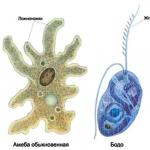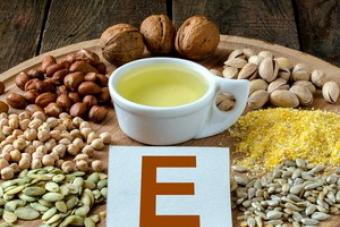The size will not allow them to freely penetrate into the cells of the human body (hydration). For effective hydration to occur, this water needs to be restructured within our bodies. It makes our body on its own. But in the process of changing the structure of water, our body expends a large amount of energy, while most of the water does not penetrate into the cells. Smaller, hexagonal water molecules penetrate our body's cell membranes much more efficiently. Bioelectric impedance analysis proved this.
Many physicians who practice alternative therapies use some form of bioelectrical impedance analysis to assess the health of their patients. One of these doctors Dr. Donald Mayfield, believes that the hexagonal formation of water allows it to provide faster and more uniform hydration.
Mayfield confirmed that some of his patients who drink water in the water still suffer from dehydration. And this is a water quality problem. No matter how pure it is, the lack of a sufficient amount of hexagonal structures in the water makes it completely ineffective, and does not solve the problem of dehydration of a person, and therefore does not get rid of others.
About carbonated drinks
 Humanity is breaking records for juices, tea and coffee. So why are most diseases and low stress resistance of all modern people associated precisely with a lack of water? The answer is simple - all these drinks are not effective sources of hydration, our body simply does not perceive these drinks. Most carbonated drinks are made from distilled water. The manufacturer deliberately goes for it, since distilled water does not interact with certain sweeteners, dyes and other chemicals and does not give any special reactions. But this does not make carbonated drinks healthy and safe.
Humanity is breaking records for juices, tea and coffee. So why are most diseases and low stress resistance of all modern people associated precisely with a lack of water? The answer is simple - all these drinks are not effective sources of hydration, our body simply does not perceive these drinks. Most carbonated drinks are made from distilled water. The manufacturer deliberately goes for it, since distilled water does not interact with certain sweeteners, dyes and other chemicals and does not give any special reactions. But this does not make carbonated drinks healthy and safe.
As people actively associate with carbonated drinks, their body becomes severely water deficient. This can lead to the most serious diseases: constipation, obesity, ulcers, headaches, heartburn, diabetes, colitis, etc. And recent studies by scientists have proven that it is not only a lack of water, but a lack of it.
An adult person consists of water by about 70%, and the human brain by 74%. The water content in some organs of our body, for example, in the kidneys, can reach 84%. About the same amount of water is contained in our blood. Even our dense bones are 22% water, and our muscles 77%.
It is not difficult to understand what a high water content in our body is, requiring us to pay increased attention to our body's signals of dehydration. The faster we respond to these signals, the less we will be exposed to various diseases and especially.
The use of hexagonal water (mountain, melt water) is especially important for our body. It is melt water that provides effective hydration of our body, rapid absorption of nutrients contained in water, improves DNA and metabolism functions.
Thoughtlessly drinking eight glasses of water a day or drinking sports drinks, you cannot be sure that your body is adequately hydrated. Explore these myths about fluid in the body and protect your health from mistakes.
Myth: If you feel thirsty, you are already dehydrated.
In fact, the feeling of thirst can be considered a fairly good indicator of the level of fluid in the body. Dehydration is the natural loss of fluid through sweat, tears, and breathing. The kidneys control the balance of water in the body, when it is not enough, they send a signal to the brain, which causes thirst. This is a completely normal feeling, which should not be taken at all as an alarming sign of excessive fluid loss.
Myth: You need to drink eight glasses of water every day.

Of course, it is very important that your body regularly receives water. However, the eight-glass advice is just a stereotype and can be dangerous. If you have heart or kidney problems, drinking too much liquid can cause heart problems, lung problems, and water poisoning. In such cases, water consumption should be limited. You need to take into account the individual needs of the body. Large people or those who sweat profusely need more liquid, but miniature eight glasses will be too much.
Myth: You should start your day with water.

You may have heard before that you should start your day with a glass of water. You may actually feel thirsty, but you don't have to drink water at all. During normal kidney function, it is pleasant to drink a glass of water, but there is no vital need for this. Some people think that fluid balance needs to be replenished after sleep, but this is not the case. You can determine the lack of fluid in the urine - if it is dark, the kidneys produce more concentrated waste due to insufficient water.
Myth: Coconut water is the best recovery drink.

This trendy drink is supposed to help you recover from a party or hard workout. Yes, coconut water has fewer calories than other potassium-rich foods, but it's not always the best option. To prevent dehydration, you can also drink plain drinking water. In addition, in people with kidney disease, drinking coconut water can lead to a dangerous increase in potassium levels in the body.
Myth: You can't drink too much

If you overzealous even with something useful, you can still face harm to the body. This is also true for water. People think that it is impossible to drink too much water. In reality, this is quite possible, and the consequences can be deadly. A condition called hyponatremia is the result of drinking too much fluid, which causes a decrease in salt in the body. This can lead to convulsions, blackouts, and even death, especially if you're running.
Myth: Water is all you need

Yes, you can indeed go longer without food than without water, but sometimes fluid doesn't give the body all it needs. Consider how intensely you train, whether it's hot outside, whether you're sweating a lot. If you're losing a lot of electrolytes, plain water won't help you get back to normal.
Myth: Drinks with electrolytes are very healthy.

Think twice before you decide to drink the popular sports drink. After light physical activity, you won’t need it, and besides, some varieties use rather dubious ingredients. For example, some contain vegetable oils that are harmful to the thyroid gland. In addition, a large amount of sugar can harm the body, especially if this sugar is used in the form of high fructose corn syrup, which causes diabetes.
Myth: Caffeine causes dehydration

Does an invigorating cup of coffee deprive your body of fluids? The common belief that coffee causes dehydration is completely wrong, especially if you don't drink too much. Large doses of caffeine can cause dehydration, but coffee or tea also contains water, which neutralizes the effect. The problem may arise if you are taking caffeine supplements - then you should drink more.
Myth: You only need to drink more during exercise.

If you think it's enough to drink cola or tea if you're not exercising, you might be in trouble. Do not think that fluid is needed only during physical exertion - this approach can cause mild dehydration. Try to drink a little water throughout the day. This will help you ensure the normal functioning of the body.
Myth: You need to determine the level of liquid by the color of urine.

Of course, urine color can indeed indicate dehydration, but there are other important indicators. In addition, if you are taking a multivitamin or eating a lot of protein, the color may be dark and irrelevant to the amount of liquid. Control not only the color, but also the volume. If you drink a lot, the liquid should leave the body intensively. If you rarely visit the toilet, this is a sign of insufficient water.
Hydration is a term used to describe your body's ability to manage its water resources at all levels, down to individual cells. Proper hydration depends on cellular water uptake, not just water intake by the body. Just the amount of water that we use to drink is not enough to ensure optimal hydration of the body.
If you are well hydrated, your body will take the water you drink (and get from your food) and it will travel to all the cells in your body that need it, carrying with the water all the nutrients these cells need. A well-hydrated body is able to use this cellular water to flush waste products and toxins from the cells and deliver them to the excretory organs. In a poorly hydrated body, these processes occur sluggishly, or are absent altogether. Without water, nutrients are not available to cells and are wasted. The products of cell activity reach a high level and become toxic.
Although hydration is one of the most fundamental processes in a healthy body, it has not received the attention it deserves among healthcare professionals and the general population.
This article is the beginning of a series of articles on body hydration that will tell you, the readers of my Beautiful and Successful blog, about the dynamics of the hydration process, show you its impact on health and disease, and advise you on how to improve your body's hydration status.
How important is water?
Water plays several roles in the human body. It provides conditions for the movement of heat from the center of the body to the surface. It provides the biochemical reactions that together make up cellular metabolism. Water is the transport mechanism for all internal movements of all nutrients and molecules, the exchange of nutrients between the environment and cells, and the removal of waste products.
Water is the most important nutrient that the body uses. It is rightly considered a nutrient because it is a necessary element in many, if not all, biochemical processes. Proper metabolism of all other nutrients depends on the availability of sufficient water for biochemical processes.
Macronutrients (nutrients required in relatively large amounts daily)—protein, carbohydrates, and fat—require water for proper assimilation and utilization. All micronutrients (nutrients required in smaller amounts or less frequently), including vitamins and minerals, also need water to function and distribute properly.
Why do doctors and coaches insist that you drink at least eight glasses of water a day? Why does the body need water in such large quantities? What happens if you drink less?
Water is the most valuable and most abundant component in the human body, it is necessary as a medium for the most important metabolic reactions, it serves as a transport system for respiratory system gases, metabolic heat, cellular substrates and by-products of their vital activity. Water is the foundation of the circulatory system. You will be interested to know these facts about water and body hydration.
Percentage
On average, a person gets water from three main sources: 60% comes from drinks, 30% from food, and 10% as a by-product of metabolism. Water loss occurs in four ways, normally 60% of the fluid leaves the body with urine, 30% through the skin and lungs; 5% through sweat and 5% with feces. The kidneys are responsible for maintaining the internal fluid balance, they regulate the loss of water and, if necessary, retain it in the body.
How does dehydration happen?
Dehydration can be caused by physical activity, increased heart rate, and increased body temperature. With insufficient fluid intake, the body loses its ability to cool down and can get heat stroke. Excessive sweating can lead to severe dehydration, a loss of 2% of body weight is already dehydration, in this state, physical and mental performance decreases. Joking with dehydration is dangerous, it comes unnoticed, but entails dangerous consequences.
How to protect yourself from dehydration?
It is not enough to drink the recommended eight glasses of water a day, the need for fluid depends on the level of physical activity. Before any workout or intense physical activity, you should drink at least 500 ml of water. The need for water during training depends on its intensity and duration, with heavy loads you need to drink 150-200 ml of water every 15 minutes.
Keeping your body well hydrated during exercise reduces the risk of overheating and heat stroke.
Do not rely on your natural thirst mechanism, it can work with a great delay. It is important to learn to recognize conditions when the need for water increases. Factors that increase the need for water include low-carbohydrate diets. Popular protein diets increase fluid loss through the urinary system, and people voluntarily expose themselves to dehydration and heat damage.
The need for water consumption increases as a person ages. After 30 years, the ability to thermoregulate deteriorates, a person becomes more prone to dehydration. Older people will have a much higher water requirement than middle-aged people, especially if they are taking medication.
Sports and proper hydration
With any physical exercise and fitness activities, your body loses water and salts. To compensate for this loss, to avoid injury and pain, and to make sports really useful, it is imperative to take in adequate amounts of fluid. In this article, the specialists of the Embassy of Medicine tell you what to do to prevent dehydration.
As a rule, the human body loses more than half a liter of water daily through sweat and breathing. With an increase in air temperature or intense physical exercise, this loss can increase to a liter and even one and a half, which leads to severe dehydration of the body, which must be compensated by drinking water or liquids containing sodium and potassium salts.
According to the European Hydration Institute, when dehydration exceeds approximately 1-3% of body weight, a person's physical performance is significantly reduced. And more pronounced dehydration is dangerous to health.
People who are involved in fitness should definitely monitor proper hydration, and this should be done at the following stages of sports:
- Before exercising, it is recommended to drink about 400-600 ml of water or drinks 1-2 hours before training to prepare the body for physical activity by adequately hydrating. This protects the athlete from a sudden increase in body temperature and reduces pain and fatigue. During exercise, athletes should begin to take fluids as early as possible and drink at regular intervals in order to compensate for the loss of moisture and salts through sweat and breath in a timely manner and maintain a constant level blood glucose levels. Hydration after exercise is essential to the athlete's recovery and should begin as early as possible.
Which is better to take to prevent dehydration while exercising - water or isotonic drinks?
In the case of light or moderate exercise (less than an hour and a half), there is nothing better and more natural than water, because the body absorbs it faster. It may be cool, but it is better not to drink very cold water. Dear readers, if you are reading this article not on the website of the Embassy of Medicine, then it was borrowed there illegally.
Various sports drinks are a good alternative when doing intense exercise for a long time. These drinks are designed to quickly replenish the loss of energy, water and mineral salts, as they contain simple carbohydrates (fructose, glucose, sucrose) and polysaccharides (starch and maltose), salts of sodium, potassium, magnesium, calcium, as well as chlorides and phosphates - all what is necessary for the rapid restoration of the water-electrolyte balance in the body disturbed as a result of physical activity. People who suffer from hypertension should refrain from drinking these energy drinks.
Fitness instructors of the Embassy of Medicine recommend that when playing sports, keep in mind a few more factors that can lead to excessive loss of body fluid and provoke dehydration.
More water and mineral salts are lost by the body when an athlete trains in a hot or humid environment. To avoid this, in the summer it is better to do it in the morning or late in the evening.
Sportswear should be comfortable and adequate. It should be made of materials that allow the body to "breathe", freely passing moisture through itself when sweating.
The hot sun always provokes a large loss of fluid, so never forget a hat to protect against overheating.
Taking diuretics can also contribute to rapid dehydration during fitness activities, so if you are taking any medications, be sure to check with your doctor.
Comments
There are no comments yet.
Add a comment
See also
Know how to read labelsDo we know what we eat? To know this, look carefully at food labels. They contain valuable information. How this can affect your health, experts from the Embassy of Medicine tell in this article.
Products that create problems. Part 1Heart disease and stroke are the leading causes of death in women. In men, it is the second most common cause of death after tumors. Although the factors that provoke these problems are very diverse, food plays an important role in the occurrence of diseases. Among them, according to experts in the dietetics of the Embassy of Medicine, there are those that should be avoided by all means.





